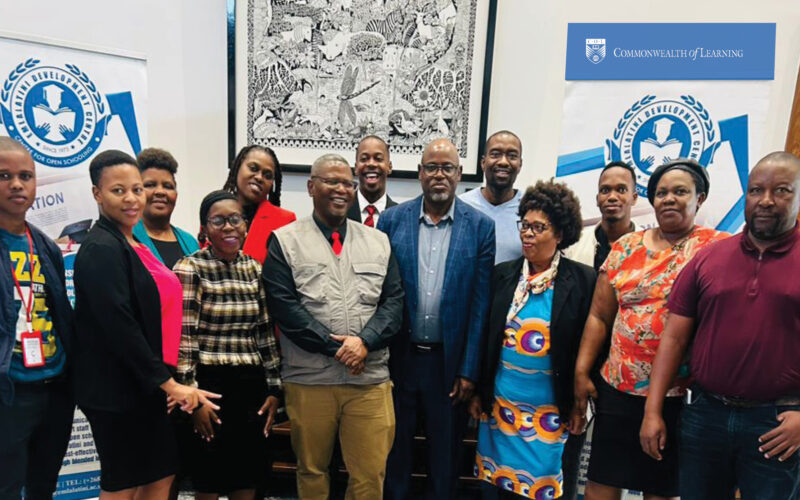
In a significant advancement for education in Eswatini, the Emlalatini Development Centre (EDC) is taking meaningful strides to enhance its Open Schooling (OS) and Open and Distance Learning (ODL) programmes. This progress is the result of a successful collaboration with the Commonwealth of Learning (COL), EDC, and the Eswatini Ministry of Education and Training (MoET). The partnership has proven instrumental in the development and implementation of open educational resources (OERs) that have notably improved educational outcomes during challenging times, particularly during the Covid-19 pandemic.
During the lockdown periods imposed by the pandemic, EDC, through this partnership, adeptly transitioned to online learning. The collaboration led to the creation of over 1,500 OERs for nine Junior Secondary subjects housed on a centralised learning management system (LMS). This robust repository enabled EDC learners to continue their education uninterrupted. Building on this success, the partnership expanded in 2021, developing over 1,800 additional OERs for 12 senior secondary subjects. These resources supported EDC’s students and contributed to a remarkable performance in the national Eswatini General Certificate for Secondary Education examinations.
Encouraged by these results, EDC recognised the need to scale up its ODL and blended learning initiatives.
To address this, a strategic workshop was conducted from 9 – 13 September 2024. This one-week workshop, organised by COL in collaboration with MoET, focused on developing a comprehensive, costed strategic plan to expand EDC’s educational offerings and make these advancements accessible to conventional schools across Eswatini.
Mr Simon Maseko, Principal of EDC, observed, “The newly developed costed strategic plan outlines a clear roadmap for scaling up ODL, OS, and blended learning provision. The plan includes detailed budget projections, resource allocation strategies, and timelines for implementation. By following this plan, EDC aims to enhance its current offerings and integrate these innovative educational approaches into a wider array of schools, ensuring that more students benefit from flexible, technology-enhanced learning opportunities.”
The strategic plan is a vital tool for the Ministry of Education and Training (MoET) in Eswatini for shaping educational policies and allocating resources. It promotes the integration of open, distance, and blended learning in line with the Eswatini Education Sector Strategic Plan 2022-2034 and UN SDG4, aiming for educational equity and accessibility. The Eswatini Education Development Centre (EDC) will use the plan to guide its expansion, focusing on diversifying learning resources, enhancing teacher training, upgrading technology, and increasing community engagement, with the goal of creating an inclusive, tech-driven education system for all students.
Dr Tony Mays, Director: Education at COL, explained, “The collaborative efforts between COL, EDC, and MoET represent a major step forward in advancing education in Eswatini. The development of the costed strategic plan is set to transform the secondary education landscape, making high-quality, technology-driven learning more accessible and effective for students across the country – particularly out-of-school children, young girls, youth not in employment, education, or training (NEETs), adults, particularly women, and persons with disabilities.”


